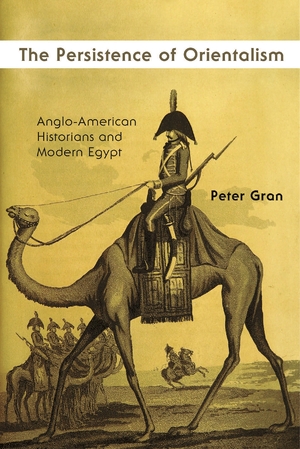"This is a book that shakes up categories. . . . Gran is most disconcerting in his choice of 'model' states—four type, each illustrated by a European and non-European instance. In the search to overcome Eurocentrism, Gran forces the reader to analyze unexpected similarities and contrasts. We may therefore learn something from him."—Immanuel Wallerstein, director of the Fernand Braudel Center, SUNY Binghamton
Description
Eurocentrism influences virtually all established historical writing. With the rise of Prussia and, by extension, Europe, eurocentrism became the dominant paradigm for world history.
Employing the approaches of Gramsci and Foucault, Peter Gran proposes a reconceptualization of world history. He challenges the traditional convention of relying on totalitarian or democratic functions of a particular state to explain and understand relationships of authority and resistance in a number of national contexts. Gran maintains that there is no single developmental model but diverse forms of hegemony that emerged out of the political crisis following the penetration of capitalism into each nation.
In making comparisons between seemingly disparate and distinctive nations and by questioning established canons of comparative inquiry, Gran encourages people to recognize the similarities between the West and non-West nations.
About the Author
Peter Gran is professor of history at Temple University. He is author of several books including Islamic Roots of Capitalism: Egypt, 1760-1840.




